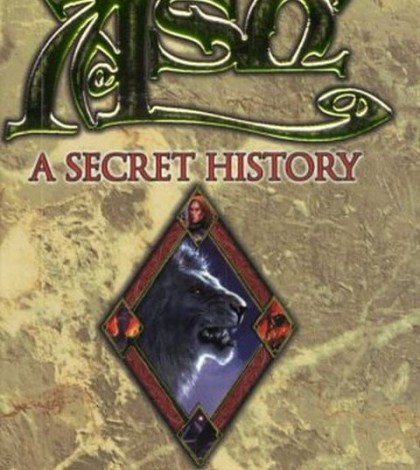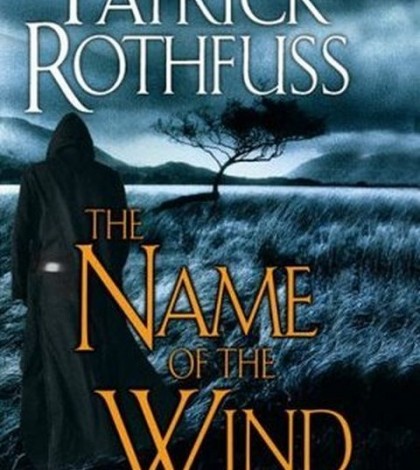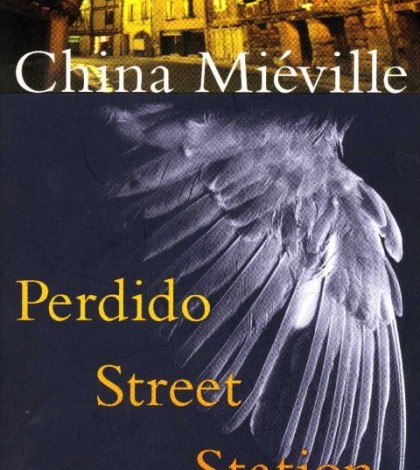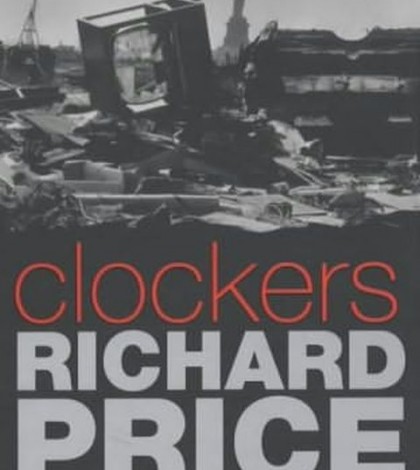A Song of Ice and Fire by George Martin Thanks to the members of BSC I recently discovered Martin’s epic series and it is now among my favorite fantasy books. Martin writes a story on an epic scale but it is really the wonderfully complex characters that carry this series. There are some truly shocking plot-developments and I love how his use of different POVs sometimes makes the reader re-evaluate certain characters (Jaime). His world is primarily inspired by late medieval England and he infuses Westeros with a level of realism that gives his books with a “feel” for history that is on a par with the best of historical fiction (they are, in fact, many points of comparison with the historical fiction of Sharon K. Penman), but at the same time he manages to infuse a magical quality to his world that reminds me of Tolkien. ASOIAF is an utterly captivating read, and I haven’t been this enchanted with a piece of fantasy fiction since reading Jacqueline Carey, Marion Zimmer Bradley and Guy Gavriel Kay. |
Kushiel’s Legacy by Jacqueline Carey Carey’s series is in fact to trilogies, which focusses on two different characters. The first sequence (Kushiel’s Dart, Kushiel’s Chosen, Kushiel’s Avatar is by far the best. These books tells the story of Phèdre nó Delaunay, courtesan and spy. There’s plenty of adventure and exotic lands in these stories, but the heart of the novels is the power of love as a force for positive change in the world. Carey’s world, centered on Terre d’Ange, can best be described as a slightly skewed Renaissance Europe. The books are written in a first person perspective in a lovely prose that is a delight to read. In my review of Kushiel’s Dart, I go into more detail about the themes of this novel. |
Guy Gavriel Kay is another favorite. All of his novels are of a very high quality, but The Lions of al-Rassan is perhaps my favorite. It is a historical fantasy inspired by Spain during the Reconquista of the late middle ages when the Catholics once and for all stamped out the Islamic culture of the Moors. Kay’s novel is a poignant and beautiful elegy of the demise of a sophisticated culture that were able to create a certain space of tolerance for people of differing creeds and religions. The Lions of al-Rassan is a story about three people of different faiths who are thrown together and who learn to respect each other despite differences of faith – in the midst of ever increasing religious conflict. |
Marion Kimmer Bradley – The Mists of Avalon, The Firebrand Classic re-interpretations of The Illiad and the Arthurian legends from a feminist perspective. |
Marion Zimmer Bradley, Julian May and Andre Norton – The Black Trillum another old favorite of mine. Bradley, Norton and May belong to the grand old “dames” of sci-fi and fantasy fiction, and together they have wrought a wonderful and rather original fantasy that incorporate elements of both fairy tale and science fiction. Highly recommended. |
Jasper Fforde – Thursday Next Series and Nursery Crimes Series Welsh author who have created the hilariouly funny Thursday Next. It is set in an alternate England where the Crimean War has lasted more than 150 years, where art appreciation has developed into hooliganism and where you can earn a living as a literary detective. fforde’s novels enganges with the vast and imposing heritage of English literature in an almost postmodern exuberance. |
Robin Hobb is another very good writer of fantasy fiction. Her Farseer trilogy can at times feel rather grim and depressing but she has created a very interesting world and this outweight the harsh trials that she heaps upon her protagonist. Though she is best known for Farseer, I prefer her Liveship Traders (set in the same world) and her Tawny Man (continuing the story from Farseer). Her short novella “Homecoming” (in Legends II, edited by Robert Silverberg) is also very good. |
|
|
Ellen Kushner is another very good author. She has written a series of books (Swordspoint, The Privilege of the Sword, The Fall of Kings, which best can be categorized as “fantasy of manners”. The are set in a regency style world, which is low on magic but rife with political intrigue. |
Neil Gaiman Neverwhere and Stardust are, IMO, the best of his novels. |
Naomi Novik – Temeraire series alternate history based on the premise of how the Napoleonic Wars might have played out with an airforce consisting of dragons. Light and humourous reading. |
Anne McCaffrey is an old favorite of mine, particularly her Dragonriders of Pern series and her Crystal Singer trilogy. I can especially recommend Dragonflight, Dragonquest and The White Dragon as well as The Crystal Singer and Killashandra. |
|
Mary Gentle writes some truly remarkable alternate history. Ash is her masterpiece, a dense, complex and demanding book that delves into the complex workings of history, myth and fiction – themes that are explore in my review |
Michael Ende German author whose Never-Ending Story and Momo are childhood favorites of mine. |
|
Tamora Pierce They are mainly YA but very enjoyable and she is consistently improving. |
China Mieville, Perido Street Station A must-read. I wasn’t particularly enamoured by the story but he sure can write. It is the city itself that is the main character, brought to life by a vivid and luscious prose, and brimming with strange hybrid creatures. |
|
Judith Tarr Judith Tarr’s historical fantasies are also among my favorites. The Hound and the Falcon trilogy is perhaps her best known book, but Alamut is my personal favorite. |
Scott Lynch – The Lies of Locke Lamora, Red Seas Under Red Skies Pure fun! |
|
Ursula le Guin, Earthsea quartet a wonderful fantasy whose lyricism and philosophical makes for an almost meditative reading experience |
Meredith Ann Pierce, The Darkangel Trilogy old-time favorite, a piece of lyrical fantasy that subtly incorporates elements from sci-fi |
|
Patricia McKillip I have only just discovered Patricia McKillip and have fallen deeply in love with her lyrical style and her ability to weave words into wonderfully vivid yet dreamlike images |




